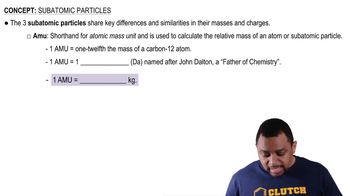Indicate whether each of the following is characteristic of the fission or fusion process, or both:
b. The nuclear process occurs in the Sun.
 Verified step by step guidance
Verified step by step guidance Verified video answer for a similar problem:
Verified video answer for a similar problem:



 2:06m
2:06mMaster Types of Radiation Concept 1 with a bite sized video explanation from Jules
Start learning